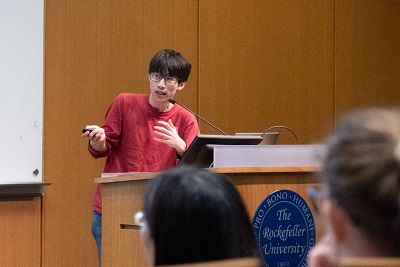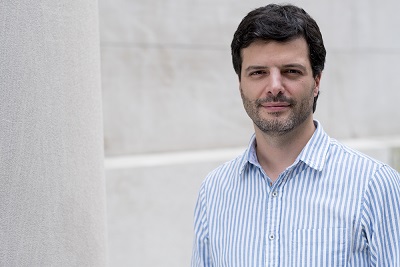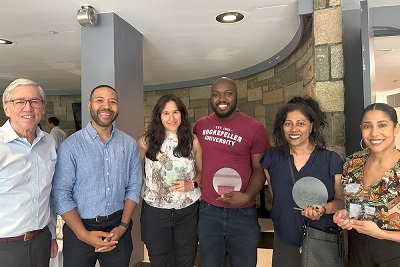Elaine Fuchs to receive 2016 Vanderbilt Prize in Biomedical Science
Elaine Fuchs, Rebecca C. Lancefield Professor and head of the Robin Chemers Neustein Laboratory of Mammalian Cell Biology and Development, has won the 2016 Vanderbilt Prize in Biomedical Science for her innovative use of reverse genetics to understand skin diseases and cancer stem cells. The prize honors women scientists with a “stellar record” of research accomplishments who have also made significant contributions to mentoring other women in science. Fuchs will receive the prize March 30.

Elaine Fuchs
Fuchs is the second Rockefeller recipient to receive the Vanderbilt Prize. In 2012, it was awarded to Titia de Lange for her research on telomeres, the protective ends of chromosomes.
Fuchs is highly regarded for her studies using reverse genetics to understand the biological basis of normal and abnormal skin development and function. Among her important research discoveries are the identification and characterization of skin stem cells and the elucidation of the molecular mechanisms underlying their ability to produce the epidermis, hair follicles, sweat and oil glands. She has also defined how the normal biology of skin stem cells is deregulated in skin cancers and other hyperproliferative disorders of the skin. Her work has implications for skin-related diseases, particularly cancers, genetic diseases and proinflammatory disorders.
Fuchs majored in chemistry at the University of Illinois, and earned her Ph.D. in biochemistry from Princeton University. She was a postdoctoral fellow at the Massachusetts Institute of Technology, and was recruited by the University of Chicago as the first woman faculty member in biochemistry. Fuchs joined Rockefeller University in 2002.
Fuchs, also a Howard Hughes Medical Institute investigator, has received the National Medal of Science, the E.B. Wilson Medal from the American Society for Cell Biology, the L’Oreal-UNESCO Award, the Albany Prize and many other awards. She is a member of the National Academy of Sciences, the National Academy of Medicine, the American Academy of Arts and Sciences and the recipient of an honorary doctorate from Harvard University.
The Vanderbilt Prize in Biomedical Science was established by Vanderbilt University School of Medicine in 2006. Prize winners receive an honorarium, meet with Vanderbilt faculty and deliver a Flexner Discovery Lecture. They also mentor Vanderbilt Prize Scholars, women who are pursuing graduate studies in the biomedical sciences in the School of Medicine.


